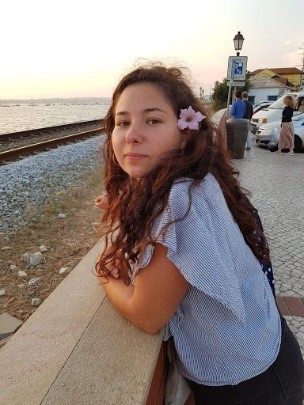You are here :
- EUTOPIA website
- Home
- Research & Innovation
- Fellowship
- SIF - Post-Doctoral Fellowships
SIF 3rd Cohort Fellows - Lydvina Meister, Pompeu Fabra University Barcelona

Curriculum Vitae
- Education
Doctoral Thesis Title: “Evolution of somitogenesis in chordates and the appearence of the vertebrate head”. Supervisors: Stéphanie Bertrand & Hector Escriva
- Experience
March 2022-October 2023: Post-doctoral researcher at Universitat Pompeu Fabra (UPF), Barcelone, Spain. Research topic: Unveiling the behavioural and molecular properties of rhombomeres’ centers in the hindbrain. This position was associated with teaching duties. I was practical work instructor in Developmental Biology course (for 2nd year Human Biology Degree) and Molecular and Cellular course (1st year Biomedical Engineering).
- Publications/Research achievement
Research Project:
GenieCellPredictor : A genius imaging toolkit to Predict Cell Division Mode upon Hindbrain Morphogenesis
Understanding how coordination between cell proliferation and cell differentiation is balanced remains a major challenge during organ morphogenesis. A precise orchestration of molecular and cellular events allows progenitors to generate the neuronal diversity of the adult brain, with proper location and number of cells. However, how this is regulated has only been partially revealed, and alterations in these processes can lead to brain perturbations. Untimely differentiation may result in microcephaly and a loss of later-born cell types, whereas excessive proliferation can lead to brain tumours.
The research proposed here aims at investigating the cellular processes involved in progenitor cell specification and how they are coordinated in the construction of the functional brain. We will address these questions in the embryonic brainstem, the hindbrain, the structure at the origin of mastication, eye movement, locomotion and respiration. Thus, the central questions of this proposal are: i) Can we foresee cell division modes by quantifying cell dynamics? ii) Can we predict tissue growth and morphogenesis by understanding how changes in cell dynamics are integrated in time and space?
To tackle these questions, we propose to study the cell morphology features as a readout of the mode of cell division. Combining high-throughput analysis of time-lapse imaging data and semi-automated image quantification we aim to assess the role of cell and tissue architecture in cell fate acquisition during brain morphogenesis.


